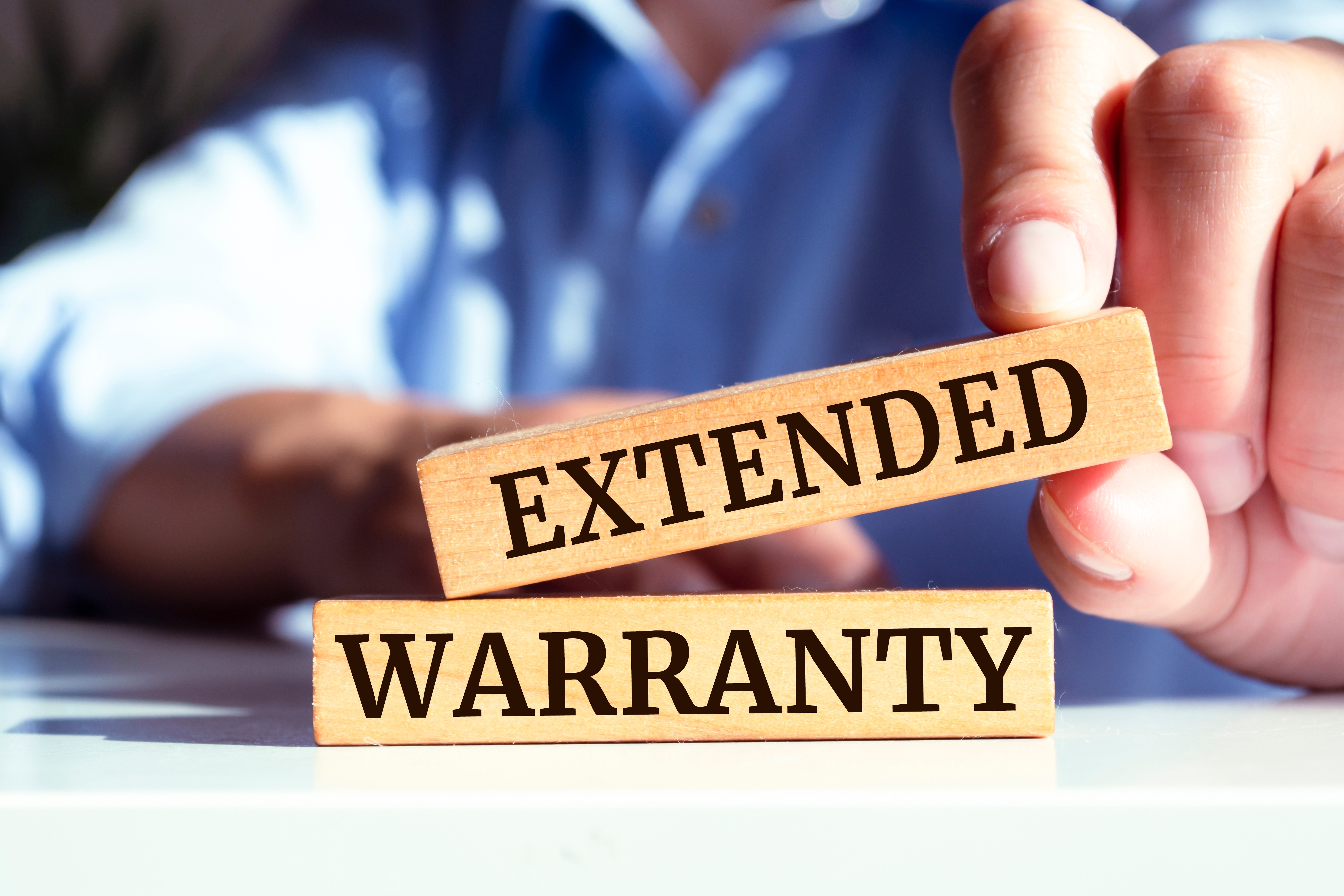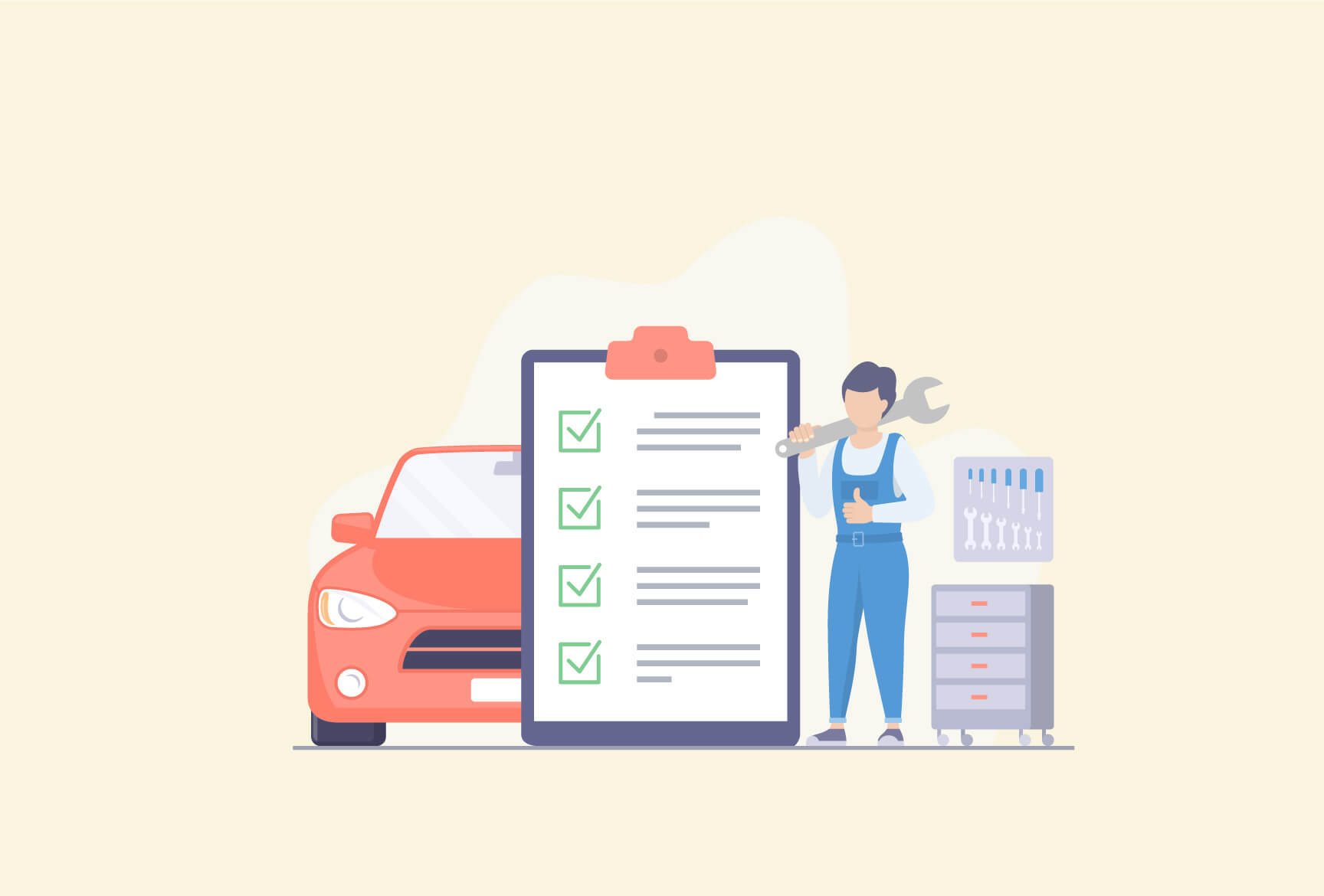Content
Recent Posts
Common Auto Warranty Misconceptions: Debunked!

It's time to debunk some common auto warranty misconceptions! We find that there is a lot of confusion surrounding extended warranties. But they can actually be a smart investment if you plan on keeping your vehicle for a long time or driving several thousand miles per year with it. Because no matter how technologically advanced they get, modern cars can still require costly and unexpected repairs.
Content
You’ll find it important to educate yourself about auto warranties to see how useful they can be to you. You might find that extended coverage is worth considering if you want to avoid being hit with hefty repair bills down the line. We think you might be happy to find that dealerships aren’t the only places to get extended warranties. In fact, many third-party providers have competitive pricing and coverage options available that might suit you better.
Auto warranties are designed to help you have peace of mind as a car owner and to provide financial protection in the event of unexpected repairs or breakdowns. But there is a lot of bad information out there surrounding them that can leave you, as a consumer, confused and misinformed. We'll wade through some of those common misconceptions and debunk the myths surrounding auto warranties to help you understand the true cost of owning one.
We’ll also discuss some helpful information to aid you with your warranty buying decisions. For example, we will also tell you about VSCs (vehicle service contracts) and how they relate to auto warranties, and give you some tips to avoid falling for scam robocalls related to extended warranties.
What Is an Extended Automotive Warranty?
An extended automotive warranty is a kind of added protection that covers repairs and maintenance for your vehicle beyond the manufacturer's warranty period. You typically buy it from a third-party provider, and it would cover a range of repairs, including engine, transmission, and electrical system repairs, among other things. A dealership can also sell you similar coverage, but it could be more limited or in the form of a Vehicle Service Contract (VSC) that may not cover breakdowns caused by wear and tear, for example.

A warranty is different from the auto insurance you have to buy. Insurance covers damage to your car resulting from collisions, theft, or vandalism. Your insurance policy may also cover the cost of injuries or property damage caused by your car. A warranty, on the other hand, covers issues that come up over time, like routine maintenance and any repairs needed for mechanical breakdowns or defects.
It’s good to remember that while an extended warranty may provide additional coverage compared to a manufacturer's warranty and last after that original warranty expires, some of them could still have limitations or exclusions that will affect you in the long run. For example, dealership extended warranties that come with new car purchases often have limits on mileage or time duration, while third-party warranties can offer more personalized coverage options.
We think there is great value in an extended auto warranty. You might not be aware of how expensive car parts or repair costs can be until you absolutely need them. It's important to ensure that you have adequate coverage for your car in case of any unexpected repairs. Without it, you could end up spending a lot of money on new parts and repairs. These costs could place an unwanted burden on your life and the lives of your family because you might not have budgeted for them.
Common Auto Warranty Misconceptions
Many misconceptions can mislead you, as a car owner, about your extended warranty coverage options and benefits. These myths cover the gamut from how useful they are to where to buy them, whether they cover everything, and where you can repair them. Once you know the whole truth about auto warranties, you can make a better-informed decision when purchasing one.
Of course, not all auto warranties are created equal. Different providers offer varying coverage options and terms for you to choose from for your vehicle. As such, it's important to research and read the fine print before making a purchase decision. Always remember to carefully review all warranty coverage, exclusions, and limitations to ensure you're fully protected.
"Extended warranties are a waste of money"
Extended warranties are often misunderstood, with many people believing they are a waste of money. But it’s quite the opposite, as warranties can actually save car owners a good chunk of change when it comes to unexpected mechanical breakdowns or routine maintenance costs. Put simply, the coverage provides peace of mind for vehicle owners.
The true cost of an auto warranty depends on several factors, such as your vehicle's mileage, make, model, and age. It's important to know what is covered in your warranty contract before signing up for one, as exclusions vary from one provider to another.
Most of the bad things we hear about extended warranties come from scams. Scammers often call or email car owners about their “expiring” manufacturer’s warranty with promises of excellent extended coverage at low prices. Their endgame is to trick you into providing personal information such as credit card details or social security numbers or to have you pay for fake policies.
Some scams involve robocalls asking people to press any key to connect with a representative, which can lead to unwanted charges on your phone bill. If you’re not sure if something is a scam, always read messages and contracts carefully for things that don’t make sense, and be wary of high-pressure sales tactics.
"You're already covered if you buy a new car"
One myth that some vehicle owners think is true is that they don't need an extended warranty if their car is new. However, even if your new car comes with a manufacturer's warranty, it will expire after a specific period or mileage limit. That’s why investing in an extended auto warranty will still provide added protection and peace of mind for costly repairs down the road.
Even though new cars are less likely to need repairs than older cars, there’s still a chance that something could go wrong. An extended warranty can help you pay for repairs if something does happen, and in some cases, the cost of an extended warranty can be less than the cost of unexpected repairs.
This is especially true if you purchase a car that is known to be unreliable or expensive to maintain. Knowing that you have financial protection in case your new car needs repairs can free you up for other important things in life. This can be especially useful if you are financing your car or have made a significant down payment.

"You can only purchase an extended warranty from the dealership"
This is a common misconception that a car dealership may exploit to upsell you on their service. While dealerships may offer their own extended warranty plans, many third-party companies specialize in providing extended warranties.
Both options have advantages and disadvantages to consider. While dealership warranties are commonly offered when purchasing new cars, they may come with restrictions or exclusions. Third-party warranties provide more flexibility to entice you, but we suggest you do your research carefully, reading the fine print, to make sure they meet your specific needs.
Remember, not all extended warranties provide equal coverage, so make sure you understand what is included in each plan and whether it fits your requirements. By doing your homework upfront, you can feel confident in your choice of an auto warranty provider.
"You have to use a specific service center for repairs"
While some warranties could insist repairs be done at a specific dealership, service center, or network chain, many allow you to go to any licensed repair facility. Of course, you may still choose to use a service center within the company network for repairs because you find it more convenient or because it gives you peace of mind. Whatever your decision may be, make sure to know all your options first.
This information should be listed within the terms and conditions of your warranty, or you might find it out by contacting a company representative directly. Regardless, keep in mind that choosing a reputable repair facility can help ensure that your repairs are done correctly and that your warranty will be honored.
Generally speaking, you can choose whether to have your car serviced at a dealership or an independent repair shop as long as you adhere to the manufacturer's recommended maintenance schedule.
"Extended warranties cover all repairs"
Sadly, that's not always the case. While extended warranties do cover you in an expanded sense beyond the manufacturer's warranty, they may have exclusions and limitations. Those are mainly related to routine maintenance and wear-and-tear items like tires, brake pads, and oil changes, as well as routine maintenance and pre-existing conditions.
It's vital to understand precisely what repairs are covered under your policy so you can make informed decisions on how to best protect your vehicle. So, like we said before, it's important to read the policy's fine print to understand what is and isn't covered before purchasing an extended warranty.

"Extended warranties are only for new cars"
While many people purchase extended warranties when they buy a new car, you can also buy them for used cars. In fact, we think purchasing an extended warranty for a used car is a smart financial decision, as older cars are more likely to break down and need repairs. When purchasing a warranty, you have to be clear about the make and model of the car, its age, its mileage, and your coverage needs. Any detail can affect the cost and coverage you receive. Here are two examples of that:
- A plan might fit your budget and cover a variety of repairs but require you to visit a specific list of service centers while providing no roadside assistance. Such a plan might end up costing you more over time if you live far away from such a center
- You could choose a plan with a higher deductible, and then pay less per month. However, you’ll pay more out of pocket if you need to make a claim
We recommend that you ask a lot of questions and read the terms of the warranty carefully so that you can make the best decision for your case.
Important Facts About Warranties
Even after clarifying the facts from the myths, you might be unsure about going forward with an extended warranty in the future. Let us help you by sharing some answers to common questions consumers ask about warranties.
And one thing to always keep in mind is that not all warranties are created equal. As a rule, we think it’s crucial to research thoroughly before committing to any type of car warranty.
What is the difference between VSCs and Auto Warranties?
Vehicle service contracts (VSCs) and manufacturer vehicle warranties can be mistaken for each other, but there are some differences. An auto warranty covers repairs for a specific amount of time or miles driven, while VSCs can provide extended coverage beyond the manufacturer's warranty period. However, be aware that routine maintenance and wear-and-tear are usually excluded from coverage under both options.
So if you’re deciding between getting an extended auto warranty or a VSC, you should do your research to see what’s covered. Some repairs may not be included in these options, so it's essential to be aware of exclusions like defects caused by a manufacturer error or damage resulting from regular use. To ensure you get the maximum benefits from your chosen plan, keep receipts for any repair work done on your car and report any mechanical breakdowns as soon as possible.
Can I buy an Auto Warranty at any time?
Auto warranties can be bought anytime, but it's best to purchase one before your original warranty expires; otherwise, the cost will likely be higher. We find that keeping the following in mind helps you make the best buying decision for your individual case:
- Buying an extended warranty only after you experience problems may result in limited coverage or higher premiums. Read the terms carefully and select a reputable provider with positive customer reviews and a strong claims record. Some warranties may have deductibles or repair limits per year
- The cost of the warranty will likely be higher if you buy it after the car's original warranty has expired. Additionally, some dealerships may not offer auto warranties to customers who buy their cars used
Here are some examples of when you can buy an auto warranty:
- When you buy a new car: Many new car dealerships offer extended warranties as part of their sales package
- When you buy a used car: There are a number of companies that offer extended warranties for used cars
- After your car's original warranty has expired: If your car's original warranty has expired, you can still buy an extended warranty. However, the cost of the warranty will likely be higher

What Is covered under a Vehicle Warranty?
Also called a “manufacturer” auto warranty or “factory” warranty, those refer to the coverage included with a new car. They cover your vehicle for mechanical or electrical failures caused by manufacturing defects but not damage from wear and tear, accidents, neglect, or misuse. On top of that, there may be limitations on covered repairs or reimbursement amounts.
An extended warranty typically offers wider, more comprehensive coverage for your car. Reviewing and comprehending the warranty details before buying a car or requesting repairs can save you a lot of time and grief.
What voids a Vehicle Warranty?
It is important to read your factory warranty carefully to understand what is and is not covered, and contact the manufacturer or dealer if you have questions. Your insurance plan, especially if it is a comprehensive one, may cover your repairs in some of those cases. However, your insurance might not protect you from possibly voiding your warranty because of these factors.
There are a number of things that can void a manufacturer's warranty, some of which include:
- Abuse or neglect: If your vehicle is damaged due to abuse or neglect, like driving off-road, racing, or overloading the vehicle
- Modifications: If you make any modifications to your vehicle that are not approved by the manufacturer, like installing aftermarket parts or changing the engine
- Accidents: If your vehicle is involved in an accident, and this is especially true if the accident is caused by driver error. However, your insurance should cover the cost of repairs
- Flood damage: If your vehicle is damaged by floodwater. If you have comprehensive insurance, you may be covered, but check the details of your plan first
- Natural disasters: If a natural disaster, such as a hurricane or earthquake, damages your vehicle. If you have comprehensive insurance, you may be covered, but check your plan details first
- Mechanical failures: In some cases, mechanical failures may void a vehicle warranty, especially if due to poor maintenance or use of improper parts
- Odometer tampering: If the odometer on your vehicle has been tampered with, as the manufacturer cannot be sure of the actual mileage on the vehicle
- Failure to follow the owner's manual: If you fail to follow the instructions in the owner's manual, like not performing regular maintenance or using the wrong type of fuel
How can I protect myself from robocalls for Auto Warranties?
Robocall scams have become a normal, clichéd part of our lives, and protecting yourself from them means being well-informed as a vehicle owner. Unfortunately, scammers use robocalls frequently to take advantage of those of us with auto warranty misconceptions, and you should prepare yourself to avoid these calls and protect your personal information.

One way to protect yourself is to register your phone number on the National Do Not Call Registry. It's also good practice to be cautious with unsolicited emails or texts offering extended warranties, and to verify the legitimacy of any warranty company that calls you before agreeing to anything.
If you receive any calls or messages that seem suspicious to you, we recommend the following:
- Check the company's website: The company's website should have a clear and concise description of its products and services and contact information. If you can't find the company's website, that's a red flag
- Look for reviews: There are a number of websites where you can read reviews of extended warranty companies. You can learn more about a company's reputation and customer satisfaction by reading reviews
- Contact the Better Business Bureau: The Better Business Bureau (BBB) is a nonprofit organization that collects and publishes information about businesses. You can check the BBB's website to see if any complaints have been filed against the company
- Ask questions: If you're still not sure if the company is legitimate, you can always ask questions. The company should be able to answer your questions fully about its products and services and its policies and procedures.
Finally, you can always contact your state's attorney general's office. The attorney general's office can help you investigate the company and determine if it's operating legally
Conclusion
We think it's essential to be aware of the common misconceptions surrounding auto warranties. We hope that we helped you debunk these myths, as they could lead to a lot of confusion and frustration when it comes to deciding how to handle your vehicle's future maintenance and repair costs. For example, thinking that you can't get an extended warranty on your used Nissan, or that getting one would just be a waste of money, can come back to bite you if it suffers a mechanical breakdown and you have to pay out of pocket.
And remember: whether you choose a dealership or third-party warranty provider, do your due diligence in researching their plans and understanding what’s covered under the warranty. Keep in mind that an auto warranty is really an investment in protecting your vehicle and your finances in the long run.
Get Your Free Auto Warranty Quote Now